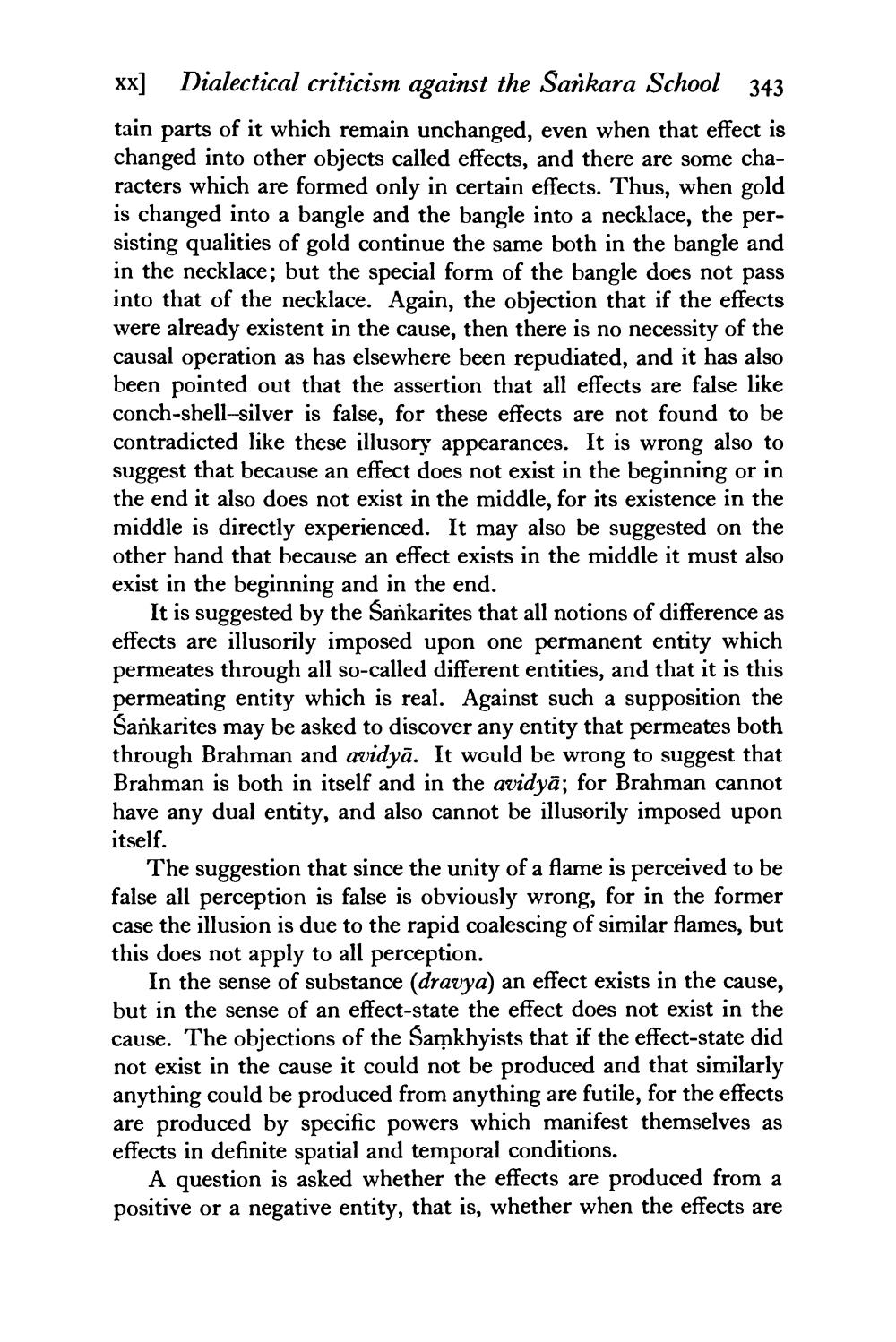________________
xx] Dialectical criticism against the Sankara School 343 tain parts of it which remain unchanged, even when that effect is changed into other objects called effects, and there are some characters which are formed only in certain effects. Thus, when gold is changed into a bangle and the bangle into a necklace, the persisting qualities of gold continue the same both in the bangle and in the necklace; but the special form of the bangle does not pass into that of the necklace. Again, the objection that if the effects were already existent in the cause, then there is no necessity of the causal operation as has elsewhere been repudiated, and it has also been pointed out that the assertion that all effects are false like conch-shell-silver is false, for these effects are not found to be contradicted like these illusory appearances. It is wrong also to suggest that because an effect does not exist in the beginning or in the end it also does not exist in the middle, for its existence in the middle is directly experienced. It may also be suggested on the other hand that because an effect exists in the middle it must also exist in the beginning and in the end.
It is suggested by the Sankarites that all notions of difference as effects are illusorily imposed upon one permanent entity which permeates through all so-called different entities, and that it is this permeating entity which is real. Against such a supposition the Sankarites may be asked to discover any entity that permeates both through Brahman and avidyā. It would be wrong to suggest that Brahman is both in itself and in the avidyā; for Brahman cannot have any dual entity, and also cannot be illusorily imposed upon itself.
The suggestion that since the unity of a flame is perceived to be false all perception is false is obviously wrong, for in the former case the illusion is due to the rapid coalescing of similar flames, but this does not apply to all perception.
In the sense of substance (dravya) an effect exists in the cause, but in the sense of an effect-state the effect does not exist in the cause. The objections of the Samkhyists that if the effect-state did not exist in the cause it could not be produced and that similarly anything could be produced from anything are futile, for the effects are produced by specific powers which manifest themselves as effects in definite spatial and temporal conditions.
A question is asked whether the effects are produced from a positive or a negative entity, that is, whether when the effects are




